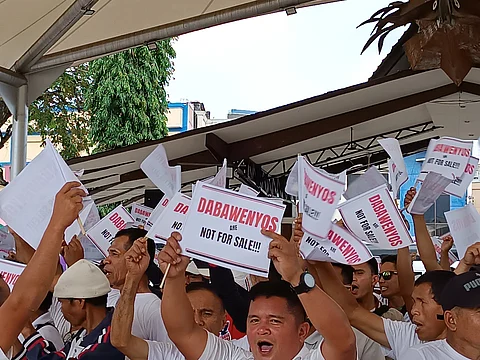

RETIRED Supreme Court Senior Associate Justice Antonio Carpio has labeled the proposed revision of the 1987 Philippine Constitution through people's initiative (PI) as a "fraud."
Speaking at a forum at the MIC Retreat House in Davao City on Sunday, February 25, Carpio argued that the PI presented as an avenue for economic reforms, is actually a "political provision" aimed at influencing the 2028 elections and potentially transitioning the government into a parliamentary system.
The retired justice contends that the Philippines already boasts one of Southeast Asia's most liberal foreign investment laws, citing the recently amended Public Service Act as a significant stride in opening the economy to foreign investments.
In his view, the current push for constitutional change through people's initiative (PI) is not genuinely about economic provisions but rather a strategic move for the 2028 elections. He believes there is an ulterior motive to shift the government to a parliamentary system.
Characterizing the PI as a "gigantic fraud," Carpio asserted that despite being touted as an initiative for economic provisions, it aims to alter unrelated provisions, making it deceptive.
Expressing concern, Carpio suggested that government officials involved in the PI may face charges of "malversation of funds" for utilizing government money in printing documents for signatories. He alleges the misuse of government funds, asserting that it constitutes malversation since the allocated budget was intended for a different purpose. Carpio adds that the scheme essentially involves "buying signatures" through the signing of the PI.
In terms of consequences, officials proven guilty could face imprisonment and disqualification from holding public office, depending on the amount malversed.
'Unconstitutional'
Carpio reiterated that the attempt to revise the constitution through people's initiative (PI) is deemed "unconstitutional."
As per the former court official, PI, one of the three methods for revising the constitution, is limited to introducing amendments, not full revisions. He supports this stance by citing provisions in the 1987 Constitution and referencing a 2006 Supreme Court case he authored, Lambino v. Comelec.
He clarified that the people's initiative "only speaks of amendment," while the other two methods — constitutional convention and constituent assembly — can propose both amendments and revisions to the constitution. In the Lambino v. Comelec case, Carpio emphasized that altering the checks and balances in Congress constitutes a revision.
Referring to Article 17 of the Constitution, Carpio explained that any amendment or revision of the charter can be done through a constitutional convention, assembly, or people's initiative.
He distinguished a constitutional amendment as any change that adds, reduces, or deletes without altering the basic principles and without affecting the substantial provisions of the Constitution.
On the other hand, a revision involves an overhaul or change of the principle of one or many provisions.
"The status as of now is there is no enabling law implementing the People's Initiative provision of the Constitution," Carpio said, adding that in the absence of an enabling law, the initiative cannot proceed.
Former President Rodrigo Duterte also opposed the PI, labeling it a "fraud" and "bribery."
He called for accountability and condemned the alleged buying of votes or signatures as a betrayal of the public's trust.
Duterte accused First Lady Liza Araneta-Marcos and House Speaker Martin Romualdez of orchestrating the PI during a rally in Davao City on Sunday, January 29. RGL
Related stories: